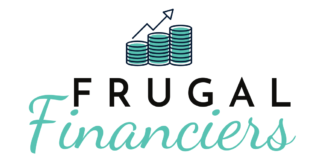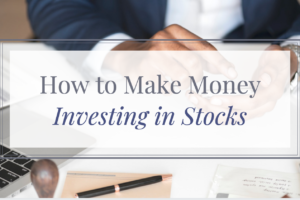A lot of people will tell you that debt is bad or evil and that you shouldn’t use it.
That’s because they’re assuming that you can’t make smart financial decisions.
But, if you want to become wealthy or have financial security, you have to be able to make wise financial decisions.
Debt is debt, there isn’t really any good or bad.
It’s more what purpose you use loans and credit for in your life.
You’ve probably heard that credit cards are bad.
And, while we’d agree that the high-interest rates on credit cards d make it not great, it really depends on the purpose.
If you have to put car repairs on your credit card (because you have no other option) so that you can get to work that’s a good use of debt.
You’re using it to make sure that you can still make income.
If you buy new rims or a stereo system on your credit card that’s probably not a good use of it.
The thing is, using loans where you create value can be a good use of debt.
It’s similar to how businesses use credit.
A business uses loans, credit, and bonds to grow the company with the hope that it will produce more revenues, maybe reduce costs and generate more net income.
You should think the same way about your access to credit.
How can you use your ability to take out loans to make more money or increase your net worth?
Maybe that means taking out student loans so that you can learn new skills and get a better paying job.
Maybe it’s taking out a mortgage to buy a house that you’ll turn into a rental property later in life.
The Value Created Doesn’t Need to be Money
It could even be something that creates non-monetary value in your life like a mortgage for your own home.
Your life is not a business.
Maybe, buying a house will provide you a sense of accomplishment and you won’t have to deal with all the negatives of renting.
You may need to take out a mortgage to pay for a house though.
There’s a chance that the home doesn’t appreciate in value and you end up spending more than renting because of repairs and taxes but you’ve still created a form of value.
This can quickly go into a grey area though.
Maybe buying some new clothes boosts your confidence which does create some value.
Is this example a good use of debt?
It’s hard to tell, hence the grey area.
But, in this specific example, we would guess that the value created is shorter-term with the good feelings associated with an outfit wearing off.
Do these good feelings outlast the amount of time it takes you to pay down the debt?
Creating Long-Term Value with Debt
A big reason why companies use credit is
A company takes out $10 million in loans because they hope that they’ll be able to create more than $10 million in value over the long term.
A company sees a way that it can make more money or save some money by spending less.
It doesn’t have cash just sitting around to take advantage of the opportunity so it has to take out a form of capital (equity, debt, etc.) to accomplish their goal.
When you’re deciding whether to use a form of credit ask yourself:
Does using this debt take advantage of the it and improve long-term value for my life?
The difference between you and a business in the situation is that a business focuses on profit and you’re just trying to live your best life.
That’s why it’s okay to use debt for things that may not necessarily create additional money but makes your life better.
You just want to balance this potential grey area the knowledge that debt can make your life worse if you use it on the wrong things.
Another question to ask yourself:
Will using debt cause a more negative e
Don’t Hate Debt, Hate Interest
You may still be a skeptic about good and bad debt.
Maybe, there is a middle ground, good interest and bad interest.
When you say you hate debt, you probably mean that you really hate interest.
It’s the real culprit between you and financial security.
If you didn’t have to pay interest, all of the money you’re putting towards your debt would go towards the balance.
But,
This is particularly bad for student loans because even though the interest rates are generally lower, the loan repayment structure results in paying mostly interest in the early life of the loan.
So, when you’re fresh out of college you’re basically paying mostly interest on your loans.
What’s also associated with being fresh out of college?
Likely having the lowest paying job of your career.
That’s why we see so many people taking extreme measures to pay off their loans.
The faster you can pay down the credit balance, the less you’ll pay in interest over the life of the loan.
Taking Out Loans Does Involve Risk
We’ll say it again. Debt isn’t bad, it isn’t good, it is what it is.
A financial tool.
I guess we could agree that it can become qualified as good or bad depending on how you use it.
But, it’s probably easier to just say the way you use loans and other forms of credit can be good or bad.
It’s like the force for all you nerds. Where my nerds at?
One thing debt always involves though is risk.
Even your credit score reflects the possibility of default.
Taking out debt does increase your risk of bankruptcy.
It might be a microscopic amount (buying an iPhone on credit) or it can be sizable (taking out a $1 million mortgage) amount of increased risk.
Some might think that makes debt inherently bad because you’ve created more potential for bankruptcy if you become unable to repay your loans.
We don’t think so.
It just involves making smart financial decisions.
How You Use Debt
A big part of making those smart financial decisions is understanding how loans and other forms of credit work and knowing your motivations for using it.
If you know that going to college will earn you a multiple of the loan amount you’re going to take out to finance college, it may be worth it.
And, if you’ve made poor decisions with debt in the past, all is not lost.
You can still reach your financial goals by making smart financial decisions today.
Just think of it as replacing the chief financial officer in your life.
All the bad decisions; that was the old CFO.
But, there’s a new sheriff in town and you’re going to make financial decisions that improve and enhance your life.
Here are some of our other posts on debt:
- How to Get Out of Debt | 5 Steps to be Debt Free
- What Debt Should You Pay Off or Pay Down First?
- How Much Money Does Your Debt Cost You Each Day?





Leave a Reply
Your email is safe with us.
You must be logged in to post a comment.